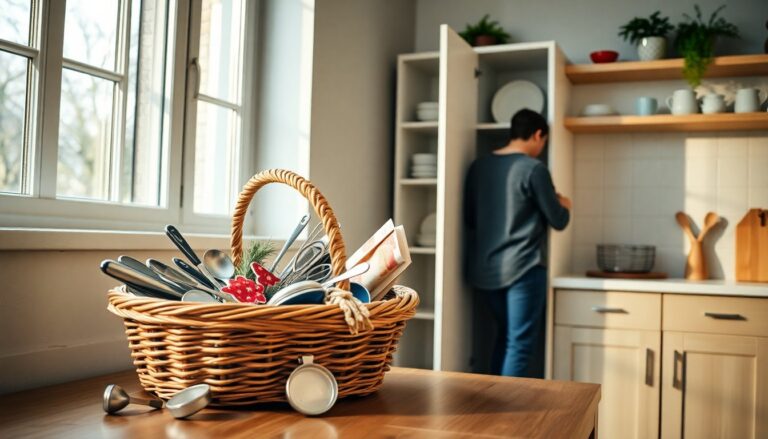Argomenti trattati
For many individuals, the struggle with storage space is a pressing issue. Many express a desire for more room in their homes, whether in closets or cabinets. However, the reality is that most possess the necessary square footage—it is simply overtaken by items no longer needed. Consider the kitchen drawer overflowing with holiday-themed cookie cutters, a collection that appears useless, particularly for someone who does not bake. By making a few adjustments, it is possible to reclaim space and improve mental clarity.
Bridget Urgo, co-owner of The Settler and a professional organizer, notes that clutter can weigh heavily on individuals’ minds. She emphasizes that when people begin the decluttering process, they often find a newfound ability to locate items easily, think more clearly, and even save money by avoiding duplicate purchases. Below, various household items to toss or donate are explored, as suggested by organization experts.
Common culprits taking up space
Vases and floral arrangements
After receiving flowers, many end up with a plain vase that soon finds its way to the back of a cabinet, joining numerous others from past bouquets. As organizer Maura Fitzgerald points out, most people will gravitate toward their favorite, high-quality vase when arranging blooms for themselves. If your collection of vases is gathering dust, consider returning them to your local florist, who may accept them back for reuse.
Kitchen gadgets and appliances
One significant contributor to clutter is the plethora of kitchen tools that are seldom used. Urgo states that possessing both an apple corer and a mango slicer is unnecessary; a simple knife suffices for fruit preparation. Fitzgerald also notes the prevalence of unused appliances, such as Instant Pots and high-end blenders, collecting dust in storage. The solution? Purge any appliances that have not been utilized in a while. Many libraries offer appliance rental programs; check if they would be interested in your unneeded items.
Digital and electronic clutter
Old electronics and accessories
Drawers often contain outdated gadgets, including broken phones and mismatched cords. Individuals tend to hold onto these items, hoping they may be useful someday. Instead of keeping them, Urgo recommends ensuring all personal information is wiped clean, followed by recycling or selling these devices back to manufacturers for credit toward a new purchase.
Excessive reusable bags
Another surprising source of clutter is the accumulation of reusable grocery bags and tote bags throughout homes. Fitzgerald advises that most households need only a few, so sort through your collection and aim to keep no more than five. The surplus can be donated to food pantries or used to transport other donation items.
Paper and sentimental items
Paperwork and children’s art
Paper clutter is a common issue, particularly among parents and older adults. From old receipts to school projects, these documents can pile up. Nikki Boyd, a professional organizer, suggests having children choose their favorite pieces of artwork to keep. For the rest, consider taking photos and creating a digital archive, which can be more manageable than storing piles of paper.
Gift supplies and excess wrapping materials
Many homes contain entire closets filled with wrapping paper, gift bags, and other supplies waiting for the next occasion. Shira Gill recommends streamlining your gift-wrapping materials by investing in dedicated storage solutions and limiting your inventory to what fits in that space. This approach ensures you will not over-purchase gift supplies in the future.
Reflections on decluttering
Decluttering may seem daunting, but addressing it one step at a time can lead to significant improvements in your living space. From discarding old toys to reevaluating your linen closet inventory, each small decision contributes to a more organized environment. It is essential to retain only the items that truly matter to you. Consider turning cherished items into art or daily-use objects instead of storing them away.
Ultimately, embracing a minimalist lifestyle can enhance everyday experiences. Fitzgerald suggests using treasured family heirlooms rather than hiding them away. This practice not only improves your living space but also brings joy into daily life.

